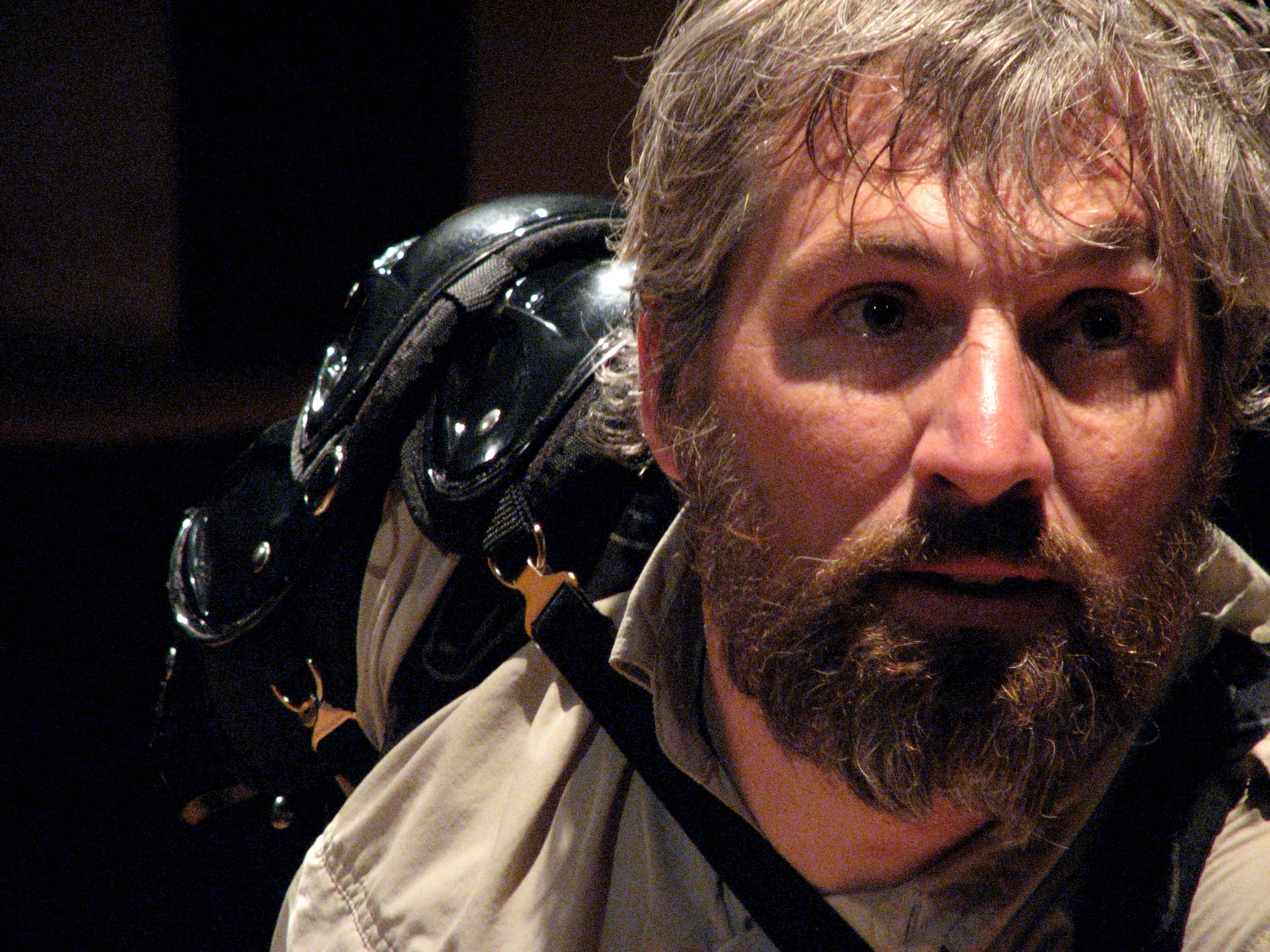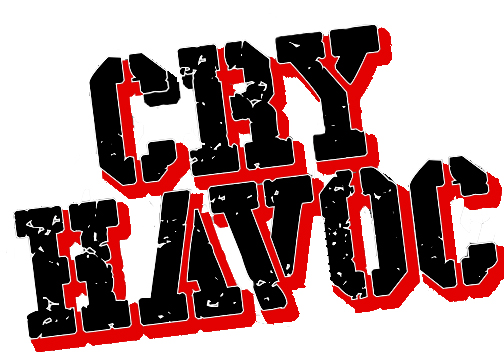On Tuesday, November 4th at 7:00pm, the Folger Theatre will present Cry “Havoc!”, a one-man play about Shakespeare’s veterans by actor, writer, director, and U.S. Army veteran Stephan Wolfert and directed by Navy veteran Eric Tucker.
Cry “Havoc”!
Tuesday, November 4, 7:00pm
Folger Theatre, 201 East Capitol St. SE
Tickets: $20/$15 Folger Members/$10 Military
Following the performance, there will be an audience talk-back with Stephan Wolfert as well by Niobe Way of NYU, Gary Barker of Promundo-US, USIP Ambassador Steven Steiner, and Michael Witmore of the Folger. Presented in association with Promundo-US and the United States Institute for Peace.
Want to see the “Cry Havoc!”speech in action? Check out a video of the speech from the audio recording and don’t forget to join us for Julius Caesar at the Folger Theatre, starting October 28. Tickets here.
Folger Theatre recently spoke with Stephan about Cry “Havoc!” and his work with Shakespeare and the military.
FT: Why is the play called Cry “Havoc!”?
SW: I do the Mark Antony speech in the play and Cry “Havoc!” is actually the first part of a larger piece called “Will and War.” The term ‘havoc’ means to break the rules of war. It is used in many of Shakespeare’s plays. In Henry V, with the Governor [of Harfleur] Henry doesn’t use the term but he is describing it. My thesis is that soldiers are wired for war but not rewired for civilian life. Even though we like to believe that havoc is something that existed only in ancient times, it is alive and well wherever there is war. We call it collateral damage but it is still havoc.
FT: What can the audience expect from Cry “Havoc!”?
SW: I don’t want them to have expectations. If they have any it can be to expect honesty and openness. I hope to give people that aren’t familiar with Shakespeare access to Shakespeare and people who might not be familiar with military veterans’ experience access to that.
FT: What does this show provide for veterans?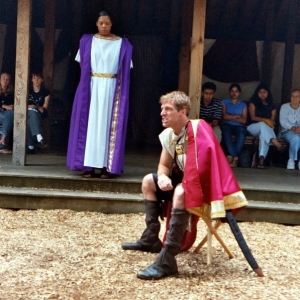
SW: For veterans, I hope that I can be a voice for them and be courageous onstage to help them be open and honest. I’ve been working with veterans for 20 years and I want to get others talking about their stories. Not because I’m unique or special but I share my story because I thought I was the only one. It turns out there are 25 million other veterans in this country and this story is over 400 years old.
FT: What are the similarities between the military in Shakespeare’s plays and today?
SW: In the army, our sworn oath was duty, honor, and country. As I talk about in the show, I did my duty, I love my country, and I served honorably. What made me fight and train to fight were the people next to me. I say in the show that I would kill for my brothers that I fought with. It is right out of, “We few, we happy few” and “He who sheds his blood with me.”
I know that these guys are the way that I am coming home and when my brothers are next to me, there is no other option. In “Once more into the breach,” Henry says, “Do this for England, St. George and Harry.” The St. Crispen’s Day speech is different – he talks about how we who survive will carry on the ones who don’t – we are fighting for each other. It is how we teach our soldiers now.
FT: Why did you decide to become an actor?
SW: [Acting] requires every bit of a person. It requires every part of myself that I am capable of bringing at this moment to these words, to this story. I’ve always been an immersive person. When I was interested in the military, I didn’t study it, I joined. When I wanted to learn how to snowboard I moved to Montana. When I decided I wanted to do Shakespeare, I went to Trinity Rep which was 14 hours a day of classical theate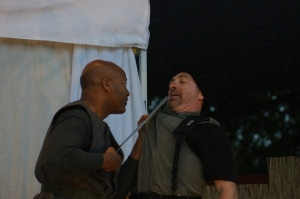 r.
r.
There is the psychological depth of Shakespeare that can be analyzed on an intellectual level. That fascinates me but it isn’t deep enough. I felt those words, that rhythm, that poetry in my body. I had a chromosomal response to it.
Acting is a way to address that response: it gets into the body. I wanted to figure out, Why is my heart pounding? Why am I sweating when I hear these words? I was feeling a-lot of things with Shakespeare that I felt in the military.
FT: What are the challenges and rewards of a one-man show?
SW: The challenges are the stereotypes of all solo shows – everyone has one. I used to feel negative about that but now I feel that everyone should have one, everyone should tell their story. I realized we all have common themes. There is the technical challenge of going [onstage] and being alone. If I forget my line there is no one to save me, but that also makes it rewarding. It is just me and the audience and I can go anywhere.
FT: What do you want the audience to feel at the end of your show?
SW: Anything. I mean it. If they are numb that would be the only problem. I love when the audience feels inspired to do something. There’s a lot of talk about supporting veterans – I love it when people say they are going to do something right now – tomorrow I’m going to volunteer with this organization or I’m going to call my dad. I hope they hear the questions that I’m asking and answer them for themselves. I hope they are inspired to act.
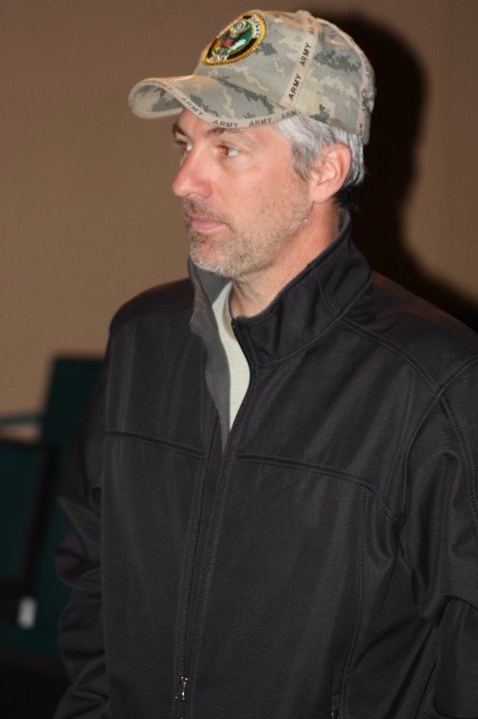
Stephan Wolfert
Stephan Wolfert Actor/Writer/Director, MFA,(AEA, SAG) (US Army, ’86-’93, Medic & Infantry Officer) Stephan left a career in the military for a life in the theatre after seeing Shakespeare’s Richard III. Stephan received his Master of Fine Arts degree from Trinity Repertory Conservatory. Stephan created the military segments for Twyla Tharp & Billy Joel’s Tony-Award winning production Movin’ Out. He directed and taught Shakespeare in performance at Cornell University and Antelope Valley College. He is Head of Outreach for Bedlam Theatre NYC, and an advisory member of PACH, Project for the Advancement of our Common Humanity at NYU.
For more information about Stephan and his work, check out the links below and join us for Cry “Havoc!” on November 4th. Tickets here.
Shakespeare and Veterans, a company of military Veterans performing full Shakespeare Plays.
Veterans Center for the Performing Arts, the Los Angeles-based Veteran Theatre Company that Wolfert created.
Bedlam Theatre NYC, the NYC theatre company for which Wolfert is conducting free classical acting classes for Veterans.
NYU Steinhardt, the NYU Think-And-Do Tank of which Wolfert is a core-member.
“Will & War: Shakespeare Through A Military Veteran’s Lens”, Ten-Part Blog Series at HowlRound.
Stay connected
Enter your email address to follow this blog and receive notifications of new posts by email.

